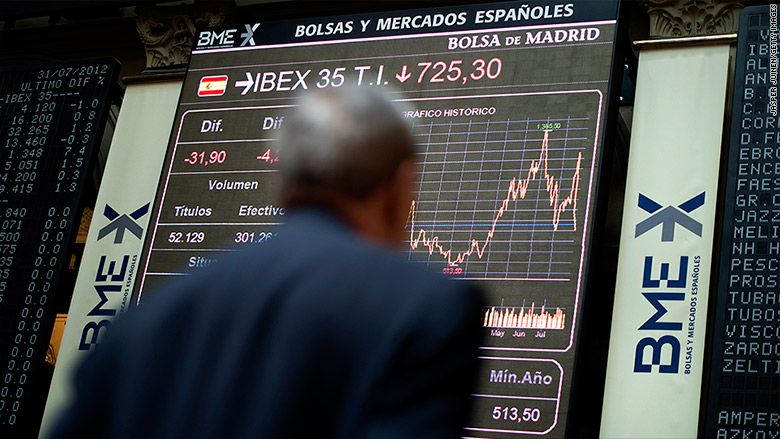
A general election in Spain has left no political party with a clear majority and thrown the country's political system into disarray.
Spanish stocks fell 2% at the open Monday, bonds yields ticked higher and the euro tracked lower.
The conservative party of current Prime Minister Mariano Rajoy won the most votes, but lost its majority. The Socialists received the second-most votes, while anti-austerity Podemos party, which was formed only last year, captured third.
The country's next government is likely to be a coalition of parties cobbled together from across the political spectrum.
Rajoy has implemented tough austerity measures, and was asking voters for a chance to see them through. Spain's economy grew by 3% this year, and unemployment had fallen from a historic 27% to 21%.
"It is now the fastest growing economy in the [euro zone], but it has unquestionably benefited from the European Central Bank's quantitative easing program," noted FXPro's chief economic Simon Smith.
Rajoy has made it clear he will try to form a new government, but negotiations with rival parties could prove to be complicated given the country's fractured political landscape. Even if a government is formed, it is likely to be weak.
Still, it is too soon to disqualify Rajoy, who remained in power in Spain despite anger from the left over austerity. Governments in Greece and Portugal that backed austerity were both thrown out of office in 2015.


